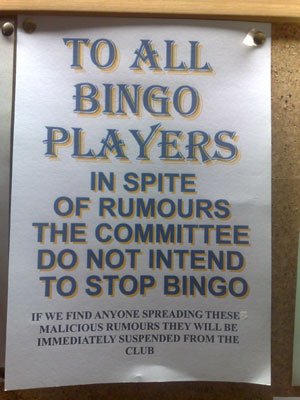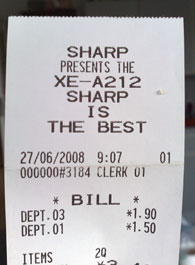The Short Version:
If you don’t have a web presence, your competitors will overtake you. You’ll miss out, without ever knowing about it.
The Long Version:
I recently worked with a new client who has very little presence on the web. One of the first things I do when a new client gets in touch is Google them.
I’m not being nosy; I want to know:
- who they are
- what they’ve done
- what they’re doing
- what people are saying about them
- what they’re saying about other people
It’s important to me that my clients are reputable, respected and not notorious for late payment, spamming or other nefarious activities. And I think Googling a business or individual is the very least you should do to check someone’s credentials.
Now, this particular new client had almost no mentions on the web. Which seemed weird. So I asked my new client if they had a web presence and she said:
“I have a web domain but I’m yet to develop it and I have a linked in account but don’t check it. What advantages does a social media presence have?”
Rather than reply by email, I thought this was a good opportunity to blog about the reasons for having a web presence – a chance to create a blog post that I can point other clients and colleagues towards when this question arises.
So, what is the value of being mentioned on the web, and maintaining a healthy social media presence? The value is manifold:
Supporting Evidence
It’s nice to see evidence of a person’s life – their actions, their works – the web is a perfect place to scatter this evidence.
Connections
Who do you know? Who have you worked with? The web lets you demonstrate your connections in a way that feels more genuine than anonymous claims in a CV. LinkedIn is especially good for showing connections and displaying recommendations – all deeply authentic because it links you to the actual people you’ve worked for.
Sense of Self
Your web presences allow you to give a bit of yourself away. Don’t be a cold, flat CV – be a human being with opinions, preferences, idiosyncrasies and embarrassing musical tastes (see Last.fm).
Build Trust
Every time your name appears on the web, it increases the sense that you are a real person who does real things, and who can be relied upon in a real sense. If someone Googles your name and finds nothing but a private Facebook profile, they have learnt nothing. Give searchers everything they could possibly want.
Networking
The web is incredibly democratic – you can speak to anyone on Twitter and (if you go about it in the right way) get their attention.
Industrious social media operators can side-step traditional recruitment processes and make friends with potential employers. Social media tools like Twitter and FriendFeed give you access to interesting individuals – and the chance to make their acquaintance.
How do you do all this?
It’s easy! Just follow my twelve-step program:
- Read blogs
- Join Twitter
- Read blog posts about Twitter, like this one
- Start a blog. If you’re technologically-challenged, use WordPress.com, TypePad or Blogger
- Tweet regularly
- Blog regularly
- Comment on other blogs in fields that interest you
- Use @replies on Twitter if you have something interesting to say (that ensures the recipient sees your tweet)
- Join FriendFeed
- Maintain your LinkedIn account, updating connections, asking for and giving recommendations
- Work on getting a proper website. Again, if your technical expertise is limited, consider WordPress.org
- Once you’ve been blogging for a little while, offer to contribute a post to another blog
Scratching the Tip of the Social Media Iceberg
As you’ve probably guessed, there’s more to it than my 12 steps suggest. Every social networking site has its own quirks and requires different strategies to get the most out of it.
The best way to get started with anything like this is slowly. Take measured steps – always take a bit of time to see how people use websites like Twitter and LinkedIn. Follow the lead of others, and try to understand what constitutes bad behaviour in each forum.
Further Reading:
Matt at Zen Bullets has an interesting post: Write Your Autobiography, Before Someone Else Writes It For You


